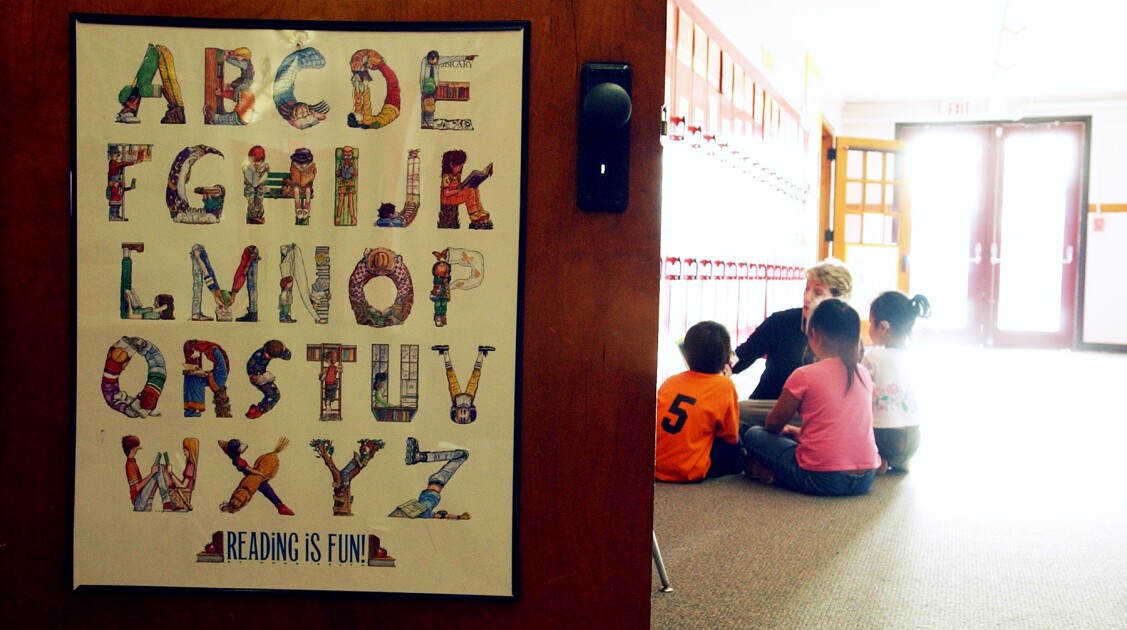State science standards tend to cover evolution more extensively and better than they did nearly a decade ago, but at the same time, “creationist language” has become more common in them, concludes a review of the standards in all 50 states and the District of Columbia.
The findings of the review by the Oakland, Calif.-based National Center for Science Education are intended to update a similar evaluation of coverage of evolution in science standards in 2000 commissioned by the Thomas B. Fordham Foundation. The latest review was published this month in the journal Evolution: Education and Outreach.
“Coverage of evolution is better nationwide,” said Anton Mates, a public-information project director for the science education center, whose mission is to keep evolution in the science classroom, and a co-author of the recent review. The study examines science standards approved as of this past May.
In the years since the 2000 review, creationists have become more sophisticated in how they try to influence inclusion of evolution in state standards, contended Mr. Mates. While those supporting creationism may have realized they can’t get the teaching of evolution removed from state standards, he said, they try to ensure that language is inserted that casts doubt on the scientific theory or gives teachers license to use materials in class that criticize evolution.
“On the whole, things are better. It’s better if [students] get the information [about evolution],” said Mr. Mates. “But it can be undermined by bringing in competing nonscientific material.”
“It’s almost surprising to us that we are having this discussion about inclusion of evolution,” given that the theory is well-accepted by scientists, said Francis Eberle, the executive director of the Arlington, Va.-based National Science Teachers Association.
Mr. Eberle said his organization is in favor of states adopting common national science standards. The National Research Council produced voluntary national science standards in 1996 that are “quite clear about evolution,” he said. The NSTA and other science education organizations, he added, are now working on revising those 1996 standards and are having “early discussions” with participants in the national effort to create common core standards headed by the National Governors Association and the Council of Chief State School Officers.
A Narrow Focus?
The study by the National Center for Science Education stresses the importance of state science standards to date, saying they have an influence over what is taught in classrooms. “Even if a good treatment of evolution in state science standards does not guarantee that evolution will be taught well, it provides a critical resource for teachers who want to teach evolution correctly,” the report says.
Nine states and the District of Columbia received an A for their treatment of evolution. Among them are California, which, the report says, provides comprehensive treatment of the subject in its science standards. California also presents human evolution in 6th grade social studies, the report notes.
The study also gives five states—Alabama, Louisiana, Oklahoma, Texas, and West Virginia—a failing grade for their coverage of evolution. The reviewers deemed either that the topic was completely absent from the standards or that the standards contained language or disclaimers that undermined an accurate presentation of it.
Texas, for example, got an F for coverage of evolution in its science standards, according to the report, because while the treatment is “generally comprehensive,” the standards include “creationist jargon.” (“Retooled Texas Standards Raise Unease Among Science Groups,” April 8, 2009.)
The report cites a number of examples of standards that include what the reviewers consider to be “creationist jargon.” For example, one biology standard says that students must “analyze and evaluate scientific explanations concerning any data of sudden appearance, stasis, and sequential nature of groups in the fossil record.” Asking students to “analyze and evaluate” a significant piece of the widely accepted theory casts doubt on it, in the science center’s view.
Gail A. Lowe, the chairwoman of the Texas board of education, which approved those science standards in March with a 13-2 vote, took issue with the report’s characterization of her state’s science standards. She voted for them.
For one, she said, the coverage of evolution in the new science standards is better than it was in previous iterations because it requires students to do “analysis, rather than parroting back isolated facts that someone wants them to know about evolutionist theory.” She said the state’s standards don’t include creationist jargon.
Besides, Ms. Lowe said, the National Center for Science Education is taking a very narrow approach in reviewing science standards—singling out evolution coverage. “It would seem to me that K-12 science education is a broad area, and if they focus on one very narrow focus of teaching, the [report’s] grade doesn’t mean very much,” she said. There’s a whole lot more to science education than just evolution, Ms. Lowe added.







